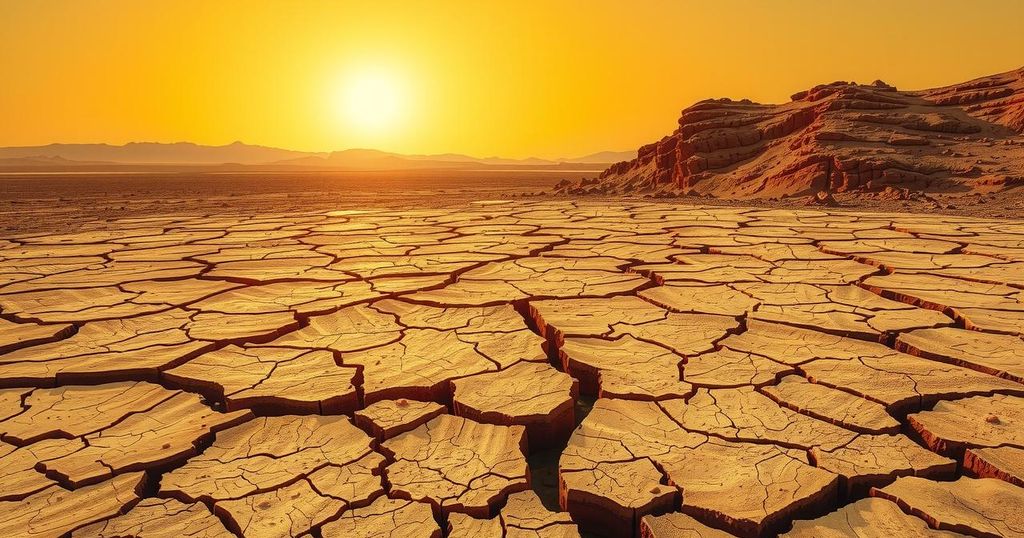A recent study has linked the ongoing heatwave in South Sudan to man-made climate change, revealing its disproportionate impact on women and girls. The country, struggling with political instability and insufficient infrastructure, is unprepared for such environmental challenges. The prolonged extreme heat is becoming a disturbing norm, creating severe burdens for its populace, particularly affecting daily responsibilities and livelihoods.
A recent study indicated that human-induced climate change has amplified the likelihood of the heatwave currently affecting South Sudan. This extreme weather event, which has resulted in soaring temperatures, is having a particularly severe impact on women and girls in the region. South Sudan, an impoverished nation struggling with instability since its independence in 2011, is ill-prepared to face such escalating environmental crises.
Amid ongoing political turmoil, fears arise that the 2018 peace agreement, which ended a protracted civil war, could be at risk. Reports detail that February’s heatwave has caused temperatures to soar to 40 degrees Celsius (104 degrees Fahrenheit) in certain areas. In response, the government has closed schools in the capital, Juba, due to alarming health concerns, with reports of an average of twelve students collapsing daily as a direct result of the heat.
The World Weather Attribution’s study asserts that climate change has made this extreme heat at least 2 degrees Celsius hotter and more than ten times likely to occur. Kiswendsida Guigma, a climate scientist with the Red Cross, noted that “climate change is clearly making life even more difficult in South Sudan, a country already facing economic challenges and periods of instability.”
The study highlights the significant outdoor labor force in South Sudan, where many homes are inadequately equipped to deal with the heat, such as lacking air conditioning. Additionally, widespread access to drinking water remains limited, and only 8.4 percent of the population had access to electricity in 2022, according to the World Bank. Women and girls carry the brunt of responsibilities such as water collection and cooking, exposing them to harsher conditions during the heatwave.
Elizabeth Lodou Lochapio emphasized the struggles of women, stating they “have to go out there to make a living despite the heatwave.” During peak heat hours, she noted, “I don’t move; I make sure that I stay in one place.” Sarah Kew, a researcher with the Netherlands Meteorological Institute, remarked that “climate change means that dangerous heatwaves exceeding 40 degrees are becoming the new normal in South Sudan,” and that these heat events are now occurring every two years, presenting extreme challenges for the populace.
The study forecasts that the heat will continue throughout March, reiterating the dire circumstances faced by South Sudanese citizens as they navigate this new reality brought on by climate change.
In summary, the recent study underscores the significant impact of climate change on South Sudan, where a severe heatwave has exacerbated existing vulnerabilities, particularly for women and girls. The analysis highlights the challenges posed by increasing temperatures and inadequate infrastructure in a nation already embroiled in political instability. Urgent attention is required to address both climate adaptation and social inequalities to mitigate these burgeoning crises.
Original Source: www.webstercountycitizen.com




